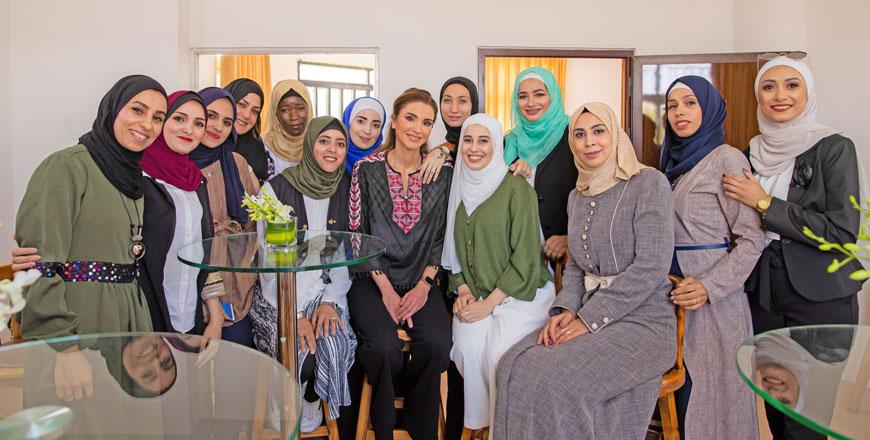You are here
Jordanian wins global competition for idea, faces funding obstacles
By Sawsan Tabazah - Oct 17,2018 - Last updated at Oct 17,2018

The 24-year old, who holds a bachelor’s degree in materials engineering from Balqaa Applied University, participated in the Youth Citizen Entrepreneurship Competition 2018 beside 650 young innovators (Photo courtesy of Facebook)
AMMAN— A young Jordanian engineer placed first recently in a global competition for his innovative idea to help in generating electricity in refugee camps through a cheap and eco-friendly device made of recycled plastic water pipes.
The 24-year-old, Shadi Zu’bi, who holds a bachelor’s degree in materials engineering from Balqaa Applied University, participated in the Youth Citizen Entrepreneurship Competition 2018 beside 650 young innovators and entrepreneurs from all over the world, who competed in two categories — “Best Projects” and “Best Ideas”.
Zu’bi placed first in the “Best Ideas” category in which entries must consist of innovative solutions or propositions for an enterprise that champions the Sustainable Development Goals, according to the competition’s website. “This programme is an activity of the UNESCO Global Action Programme on Education for Sustainable Development,” the website added.
Jordan’s population growth rates have increased since 2011 by 6.67 per cent, and with the influx of Syrian refugees, the demand of electricity has risen by 6.4 per cent. The rate of carbon dioxide produced from generating electricity has also increased by about 44 per cent, which inspired Zu'bi to create the “Water Watt”, a device to help generate electricity in refugee camps.
The machine, which depends on the wasted kinetic energy of water flow inside the pipes, uses the gravity of the main water pipes network to generate between 600 watts and 1 kilowatt per hour from the flow of water inside the 10cm pipe, Zu'bi told The Jordan Times.
“Generally speaking, 2 kilowatts can supply three tents of their daily needs of electricity. Of course, each tent’s need of electricity varies depending on the types of electric machine used inside it,” Zu’bi added.
The device, which was registered as a patent in Jordan last year, produces twice the energy of solar cells, he said, noting that it will be manufactured from recycled plastic.
“During my visit to refugee camps, I noticed an increase in the proportion of plastic waste, so around 66 per cent of the device will be manufactured from recycled plastic,” Zu’bi said, noting that the prototype will be produced in a research centre in Germany, but that he is looking for a fund to cover the cost of the materials.
Funding, along with lack of support for practical scientific research in Jordan are the chellenges currently facing the project.
“Abstract knowledge without experiment is nothing. Companies and institutions are afraid in investing in scientific research, which needs a lot of money. Lack of financial support keeps our innovations on papers,” Zu’bi said.
Related Articles
AMMAN — The Jordan Enterprise Development Corporation (JEDCO) on Wednesday accepted 10 Jordanian inventors into the "Transforming Invention
AMMAN — Her Majesty Queen Rania visited social initiative Recycling for Education in Ruseifa on Monday, where she met with a group of entrep
AMMAN — Eighteen young participants from Jordan showcased their science projects on Sunday, which qualified them for the Intel International

















